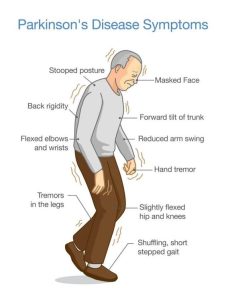Unveiling the Discovery
In a groundbreaking revelation, researchers have uncovered a gene mutation within a small protein that may revolutionize Parkinson’s disease treatment. This discovery, detailed in the journal “Molecular Psychiatry,” identifies a rare variant prevalent in those of European descent.
The Parkinson’s Landscape
As figures like Ozzy Osbourne, Michael J. Fox, and Neil Diamond continue to bring attention to Parkinson’s disease, it remains a pressing concern. Nearly 1 million Americans currently grapple with Parkinson’s, a number projected to reach 1.2 million by 2030.
Journey to SHLP2
The journey to this breakthrough began in 2016 when SHLP2, a mitochondrial-derived peptide crucial in progressive disease research, was identified. Mitochondria, responsible for cellular energy production, see a decline in function with aging.

The Role of SHLP2
Scientists observed a correlation between SHLP2 levels and Parkinson’s onset. However, as the disease progresses, patients often fail to produce sufficient SHLP2. This led to the identification of a protective SHLP2 variant, predominantly found in 1% of Europeans, offering a 50% reduction in Parkinson’s risk.
Implications for Treatment
The protective SHLP2 variant shows promise in preventing mitochondrial dysfunction, providing a potential avenue for innovative treatment strategies in Parkinson’s disease.
Guiding Future Research
Pinchas Cohen, the senior author of the study, highlights that this discovery underscores the importance of exploring mitochondrial-derived microproteins in addressing age-related diseases.
Beyond Parkinson’s
Beneficial effects of the mutated SHLP2 form were observed in both human tissue samples and laboratory mice, offering insights that could guide therapy development and extend to understanding other mitochondrial microprotein mutations.
Conclusion
This breakthrough not only opens new doors in Parkinson’s research but also offers hope for innovative treatments and a deeper understanding of the intricate relationship between gene mutations and neurodegenerative disorders.
Reference:
Kim, S.-J., et al. (2024). “A protective SHLP2 allele reduces the risk of Parkinson’s disease.” Molecular Psychiatry.
